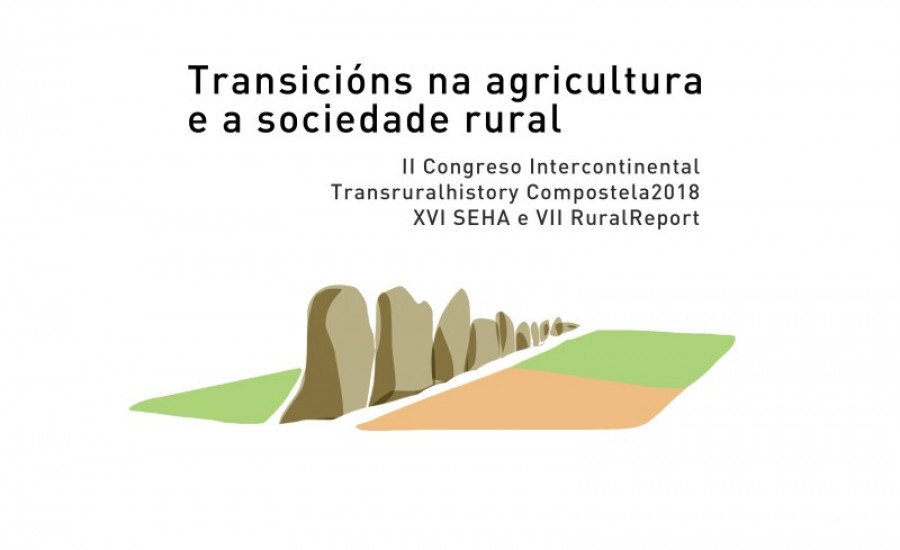2nd International Conference Transitions in Agriculture and Rural Society

XVI Congreso de Historia Agraria-SEHA # VII Encuentro RuralRePort
Rural History is going beyond the mostly national or state analytical framework which characterised it, as well as the perspectives and interpretations too focused on Europe and the Western World. After the success of the first International Conference (Lisbon-2016), the SEHA and RuralRePort retake the global challenges in Rural History research by jointly organizing a new conference in Santiago de Compostela (Galiza), which will take place between the 20th and the 23rd of June 2018.
For this Second Conference Transitions in Agriculture and Rural Society has been chosen as the key subject. On this axis we try to give continuity to the approach of a transnational and transcontinental Rural History, as well as making a contribution to the challenge of creating a global space of debate on Rural History. We aim at articulating an open space which by overcoming disciplinary, chronological and spatial borders succeeds in housing the new challenges and answers being defined in recent times from the point of view of Rural History.
Transitions are understood as historical spaces of change, but also of continuities and resiliencies which include social conflicts and forms of resistance. Demographic, socio-ecological, nutritional, cultural, social, political, colonial and postcolonial transitions, as well as changes in scientific and technological paradigms are examples of historical processes of change.
The intense relations between continents, civilizations and cultures affected agriculture, land-ownership, rural societies and the environment. Over the last five centuries goods and production factors, techniques, knowledges, institutions, cultures, legal norms… have crossed borders. This circulation at a global scale has given place to changes in the use and ownership land-rights, consumption and eating habits and markets.
As a theoretical and historiographical challenge, overcoming borders requires a stronger dialogue not only between historians from different continents and specialisations (economic, political, social, legal) but also between disciplines which focus on the same problems using different methodologies and approaches. Archeology, cultural studies, postcolonial studies, science history and demography are part of this large field of work on agriculture and rural societies.
The main direction of this international conference is thus opening and globalizing the Rural History studies, in both a historical and historiographical sense. It will simultaneously house the VII Encontro RuralReport and the XVI Congreso de Historia Agraria del SEHA. The conference will be open to the participation of researchers from any country in the world, as well as experts in any field of knowledge or historical period. Working languages are Portuguese, Spanish and English.
Organization:
SEHA (Sociedad de Estudios de Historia Agraria)
RuralRePort (Rede de História Rural em Português)
Organizing Committee
Lourenzo Fernández Prieto (coordinador), USC
Daniel Lanero Táboas, USC
José Vicente Serrão, ISCTE-IUL
María del Carmen Espido Bello, USC
Miguel Cabo Villaverde, USC
Local Organization:
Histagra (Grupo de Historia Agraria e Política do Mundo Rural)
GESPIC (Grupo de Estudios de Historia Empresarial y Sectorial. Pesca, Industria y Comercio)
USC (Universidade de Santiago de Compostela)
website: https://transruralhistorycompostela.wordpress.com/
email: transruralhistory2018@usc.es